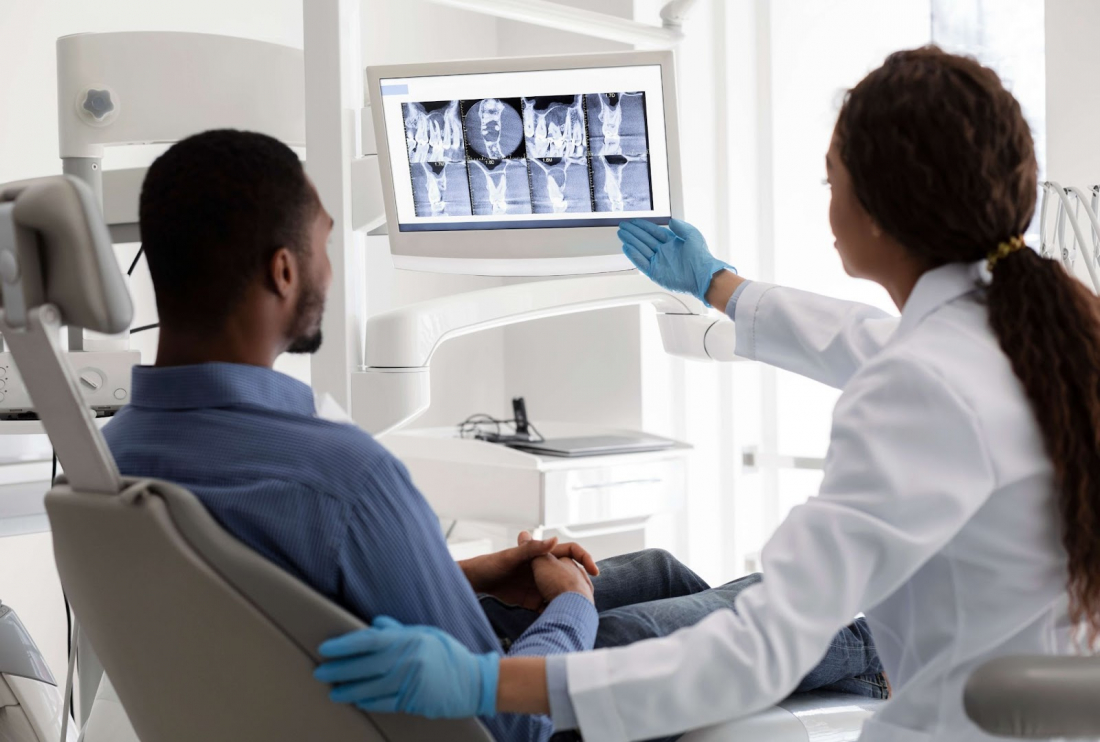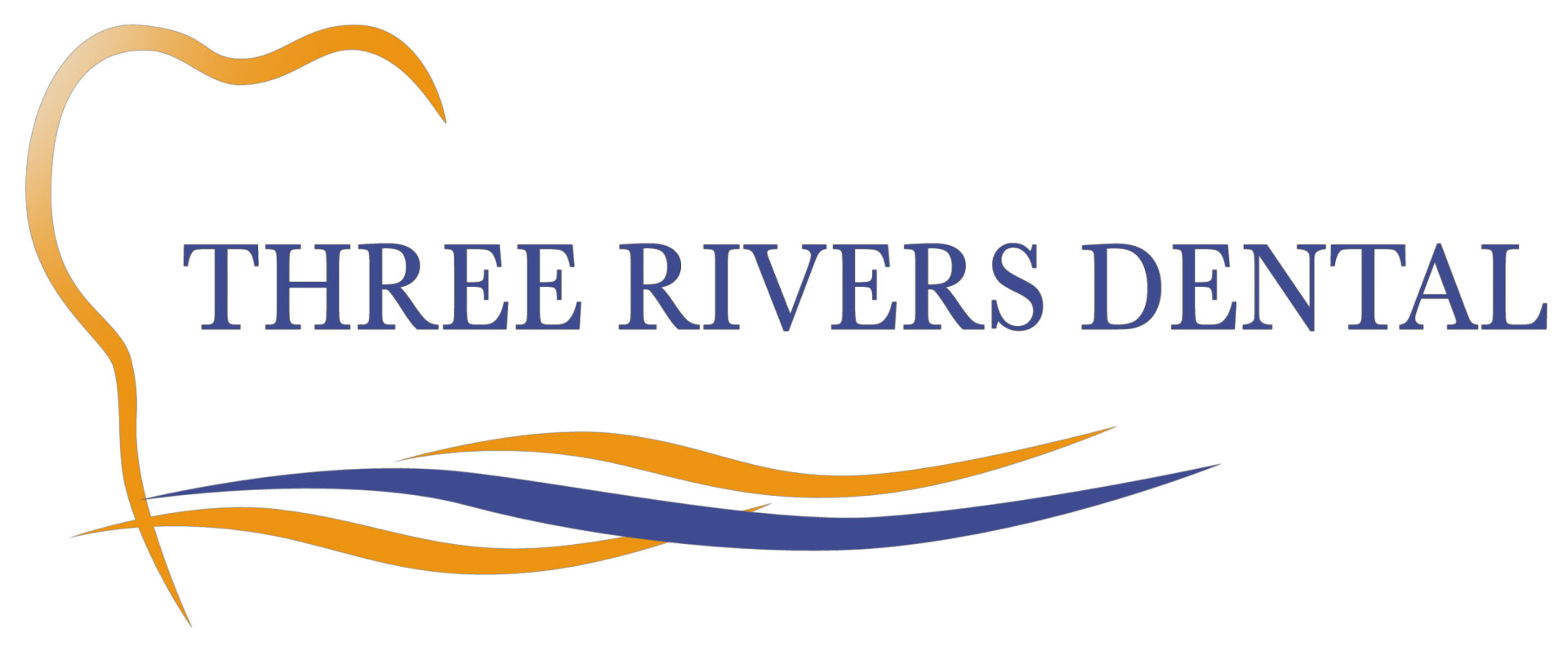The FDA has recently authorized dental practices to access artificial intelligence software to help diagnose and treat periodontal disease. The technology uses deep-learning algorithms performed in real-time to measure bone loss in dental X-rays. Periodontitis is estimated to affect nearly half of all U.S. adults. The emergence of this technology will allow dental professionals to begin detecting, diagnosing, and treating gum disease earlier in dental patients to help prevent periodontitis or further dental damage caused by periodontal disease from occurring.
Technology for Early Detection of Gum Disease

Overjet’s Dental Assist medical device product applies artificial intelligence in real-time to aid dentists and hygienists with providing personalized comprehensive patient care for the diagnosis of gum disease. The AI visualization process helps educate patients on how periodontitis is affecting their oral health, allowing dental professionals to analyze the extent of gum disease for each patient and tailor an individual treatment plan or restorative dental care recommendation unique to each patient’s needs. PR Newswire reports Overjet’s Dental Assist technology will improve the detection rate of periodontal disease, a condition affecting an estimated 46 percent of U.S. adults, including 8.9 percent who have severe periodontitis. “We’re seeing dental AI software perform at the level of a team of trained dentists with accuracy closer than the width of a needle,” said Dr. Chris Balaban, DMD, Clinical Director for Overjet. “These tools unlock the ability to track the progression of disease over time for each tooth and make the case for evidence-based treatment, supported by unbiased software and clear visuals for patients.”
Stages of Periodontal Disease
According to the Center for Disease Control and Prevention, many Americans are affected by some form of periodontal disease. In fact, up to 48% of Americans experience mild to chronic levels of gum disease and around nine to ten percent of those dealing with periodontal disease are experiencing more severe cases. Periodontal disease has two stages: gingivitis and periodontitis. If left untreated, gingivitis can become periodontitis and cause serious infection and permanent damage to the teeth and jaw.
Periodontitis begins with inflammation, or gingivitis. As plaque bacteria accumulates on teeth and moves into gum tissue, gums begin to bleed when brushing or flossing. When left untreated, this infection progresses, putting jawbones and teeth at risk for damage. Eventually, the infection causes connective tissue holding teeth in place to deteriorate. The gums, jawbones and other tissue supporting teeth are destroyed, leading to tooth loss. Even worse, severe gum disease is linked to hypertension, also known as high blood pressure. The findings of a study published in the Oxford Academic have concluded people with advanced periodontitis have a 49% higher risk of hypertension. In a separate study, the Oral Health Foundation linked bad mouth taste or bad breath as a possible warning sign for hypertension.
Preventing and Treating Periodontitis
Periodontitis prevention is key. Early detection, preventative measures, and treatment can help patients fight or reduce the risk of periodontal disease. Preventing periodontitis is easier than you think. Dental hygiene and routine dental care is imperative to overall oral health. A daily oral care routine will help fight and even prevent the risk of periodontal disease from starting. Take action with daily dental hygiene and oral health care steps, including:
- Routine Brushing: A study by the Journal of Dental Hygiene found the average person brushes only 45 seconds. Brushing for a full two minutes can remove plaque by more than 25 percent. Try finding a good song to listen to for two minutes while brushing, setting an alarm, or investing in a toothbrush with a built-in two-minute timer.
- Floss Daily: Flossing should follow brushing. Failing to effectively remove food debris from between teeth can lead to gingivitis, also known as gum disease, which when left untreated can lead to periodontitis. Daily flossing removes plaque buildup and bacteria left after brushing the tooth surface. Mix up the daily floss string interdental cleaning routine with other flossing options including floss picks or air and water flosser tools.
- Eat and Drink for a Healthy Smile: Healthy teeth are affected by what we eat and drink. Foods rich in calcium and phosphorus promote strong teeth and jaw bones. Vitamin C is great for gum health. Drink plenty of water throughout the day to prevent dry mouth, snack smart and rinse after eating to prevent sugar and bacteria from setting on teeth. Check out our top 6 favorite foods to indulge in for improved oral health.
- Regular Dental Appointments: Regular dental exams and professional cleanings are recommended every six months for healthy teeth and gums. Patients at risk for dental disease, including pregnant women, adults who frequently take medications that dry the mouth, smokers and diabetics may need to see the dentist more frequently to prevent or address dental issues including gum disease, cavities or plaque build-up. We understand dental fear and anxiety, particularly for patients who have avoided the dentists’ office for extended periods of time. That’s why Three Rivers Dental Group offers sedation and sleep dentistry solutions to help patients relax in comfort for pain-free dental appointments.
At Three Rivers Dental Group we can work together to treat and even prevent periodontitis by establishing a regular dental hygiene and oral health care routine. Contact us at (1) 855-4-NO-FEARS or request a dental appointment online to schedule a dental exam tailored to your individual oral health needs. We are conveniently located throughout the Pittsburgh area in Cranberry, Greentree, and Greensburg.
